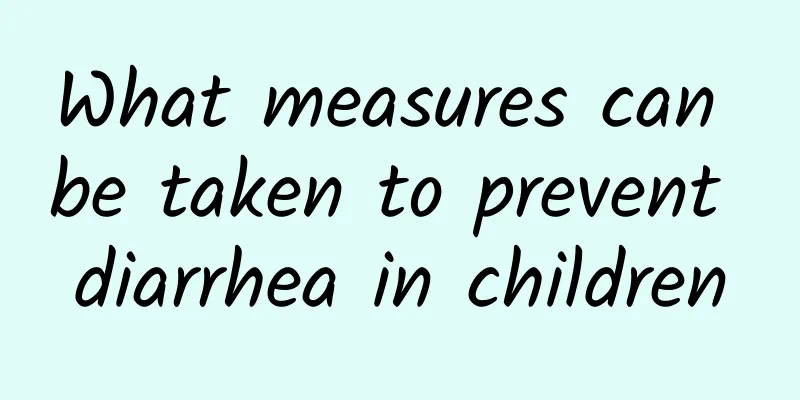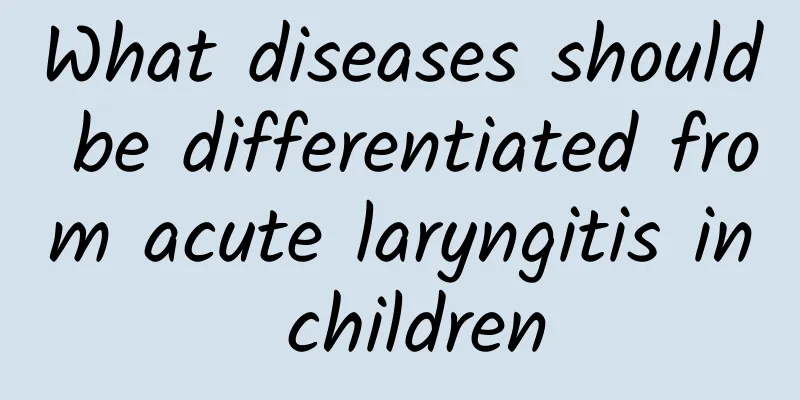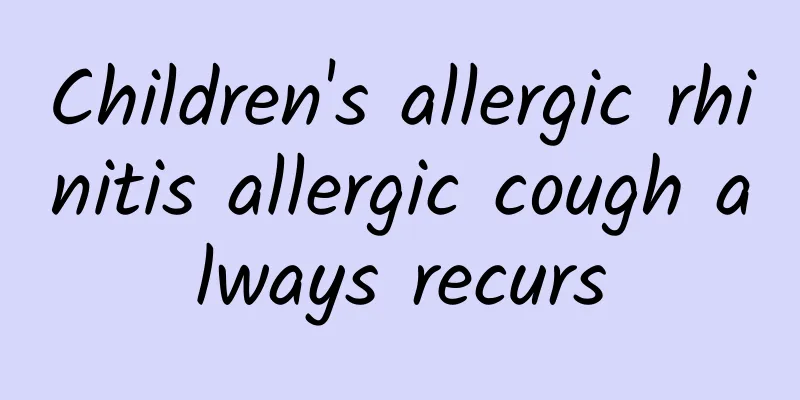What measures can be taken to prevent diarrhea in children

|
Pediatric diarrhea is a very common disease that troubles many babies. Because children have poor body resistance, they may suffer from diarrhea when the weather changes or when their stomachs catch a cold. Therefore, many parents will take some preventive measures to prevent their children from contracting pediatric diarrhea. What are the common preventive measures? 1. Promote breastfeeding: Breast milk contains a secretory immune substance, which plays an important role in maintaining and enhancing the local immunity of the digestive tract, that is, it enables the digestive tract to have a strong ability to resist the invasion of pathogenic microorganisms, ensures the healthy function of the child's digestive tract, and is less likely to develop diarrhea and digestive disorders. Therefore, it can be said that breast milk is the best health food for infants and young children. 2. To prevent children from having diarrhea, the hygiene of food and tableware is very important. Especially for children who are bottle-fed, attention should be paid to food hygiene and water hygiene. Ensure the cleanliness of the food preparation process; the tableware used must be boiled and disinfected once a day, and should be washed with boiling water before each feeding. 3. Among the diarrhea cases in children, a considerable part is caused by improper feeding. The gastrointestinal tract of children is relatively weak and its function has not yet fully developed. Therefore, you should be cautious when adding complementary food to breast-fed or bottle-fed children. First, add it on time; second, follow the principle of "from small to large" when adding a food; and avoid adding several foods at the same time. This can effectively prevent diarrhea caused by improper feeding. 4. Children's digestive tract is originally delicate, and their digestive function is significantly reduced when they are sick (such as fever, respiratory tract infection, loss of appetite, etc.). During feeding, the amount of milk or food should be reduced. Older children should be given easily digestible and nutritious food, and avoid raw, cold and greasy foods. How to effectively prevent diarrhea in children? I hope the points introduced above can help you. Therefore, in order to improve the child's body resistance, it is best to breastfeed from an early age. When feeding the child, you must check whether it is suitable for infants and young children. Do not eat food that irritates the intestines, otherwise it will be very detrimental to the child's health. |
<<: Prevention of diarrhea in children in spring
>>: Prevention knowledge of diarrhea in children
Recommend
What are the dangers of high neonatal jaundice? What are the symptoms of neonatal jaundice?
Neonatal jaundice is a disease caused by abnormal...
What to do if your seven-month-old baby coughs
7-month-old babies are prone to catching colds an...
How to treat hernia in children How to care for hernia in children
The incidence of hernia is very high, and most of...
What changes will the baby's jaundice index have at two months?
Baby jaundice index at 60 days Physiological jaun...
Which hospital is specialized in treating pediatric tracheitis?
The general symptoms of bronchitis in children ar...
Treatment of acute laryngitis in children
Acute laryngitis in children is common in infants...
What are the key points of self-diagnosis of acute laryngitis in children?
What are the key points of self-diagnosis of acut...
What is the cause of high jaundice in babies and how to treat it
High jaundice in infants is usually caused by abn...
Chinese medicine for umbilical cord plastering for children with diarrhea
Diarrhea in children can be relieved by applying ...
Introduction to medication for pneumonia in children
Only the right medicine can be effective quickly,...
What should I do if my baby coughs badly when sleeping at night?
When babies cough badly at night, they can be fed...
Why does neonatal jaundice cause sepsis?
Regarding the question of whether neonatal jaundi...
What medicine is good for neonatal jaundice? Precautions for neonatal jaundice medication
Many newborns may suffer from jaundice after birt...
How long does it take to recover from hand, foot and mouth disease?
Hand, foot and mouth disease mainly refers to an ...
Can Kaihoujian be used for nighttime emergency treatment of acute laryngitis in children?
It is not recommended to use a throat sword for n...









